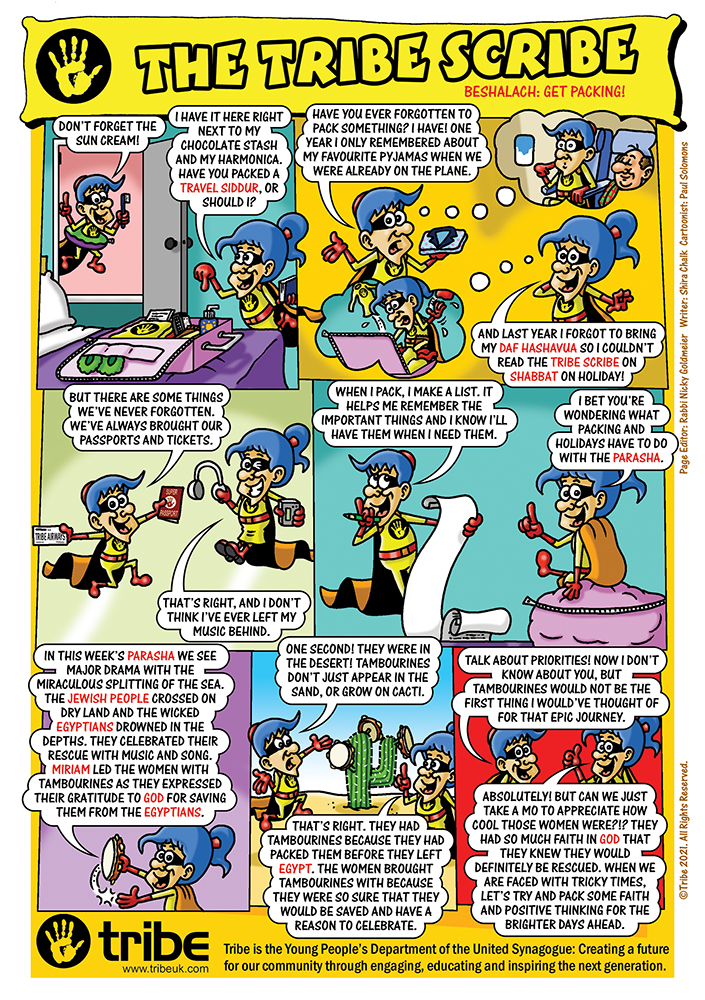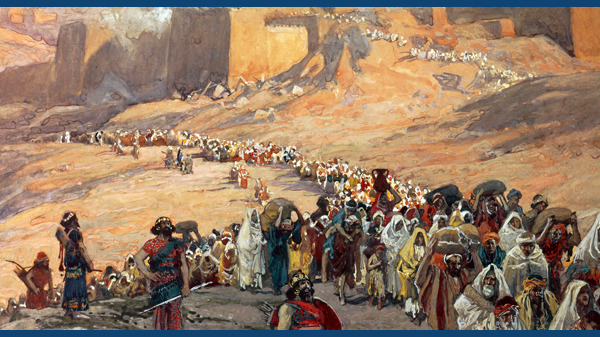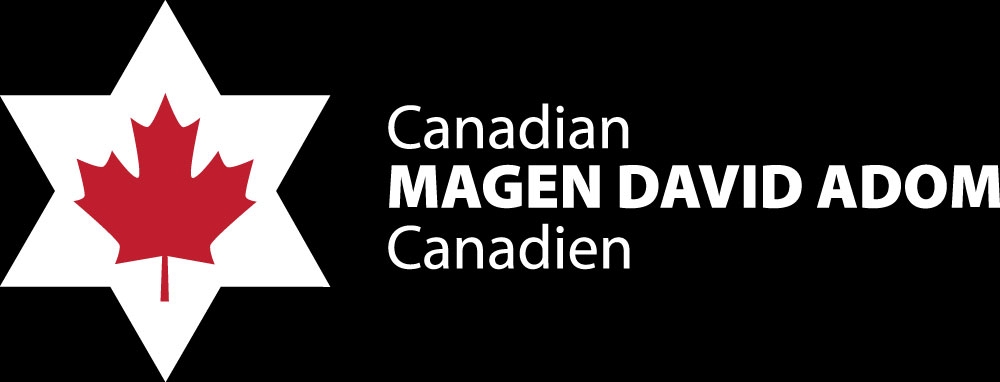Bonjour / Hello [nickname_else_first_name],
Table of contents
1) Perashat Hashavoua - Rabbi Eli Mansour
2) Halakhat Hashavoua (Halakhot related to day to day life) - Hazzan David Azerad
- Taking out the Torah and returning it to the Ark -( peninei halacha)
3) Holy Jokes!
4) FOR KIDS!

This Week's Parasha Insight with Rabbi Eli Mansour
Parashat Beshalah: The 21st-Century Battle Against Amalek
The final verses of Parashat Beshalah tell of Beneh Yisrael’s war against the nation of Amalek, which attacked them in the desert, when Beneh Yisrael were en route to Mount Sinai. This war was fought in somewhat unusual fashion: Yehoshua led the army down below, while Moshe sat on a hill overlooking the battlefield, and held his hands in the air, drawing Beneh Yisrael’s attention to G-d, and in this merit, they triumphed over Amalek.
Amalek’s war against Beneh Yisrael was an ideological one. They launched their attack as Beneh Yisrael were making their way to Mount Sinai to receive the Torah, an event that was to have brought the world to its ultimate "Tikkun" (state of perfection). When the Jewish People are poised to achieve this "Tikkun," Amalek arises to thwart this process. And although Beneh Yisrael ultimately defeated Amalek on the battlefield, Amalek was successful in its effort, as it led to a spiritual weakness on account of which Matan Torah did not achieve the full "Tikkun" of the world.
Amalek’s ideological assault occurs on two levels. They seek to undermine our nation’s Emuna (faith), and our Kedusha (sanctity). This is why both Moshe and Yehoshua led the struggle against Amalek. Moshe embodies Emuna, complete faith in Hashem, and Yehoshua descends from Yosef, who embodied the ideal of "Kedusha," resisting sinful temptations, as when he was lured by Potifar’s wife. Together, Moshe and Yehoshua successfully resisted Amalek’s assault on these two foundations of our religion.
There were other times, too, when Amalek rose against our nation to sabotage our efforts to achieve the world’s "Tikkun." Before Beneh Yisrael entered the Land of Israel, two enemies – Balak and Bilam – teamed up to try to destroy them. The last two letters of the name "Balak" and of the name "Bilam" are the letters of "Amalek." Balak and Bilam are associated with the hostile nation of Amalek, and they tried to annihilate Beneh Yisrael by placing a curse on them. When this effort failed, they successfully schemed to lure Beneh Yisrael to immorality and idolatry, in the incident of Ba’al Pe’or. This scheme undermined both the faith and sanctity of Am Yisrael, as they worshipped idols and were involved with the women of Moab, and thus Balak and Bilam succeeded once again in preventing the world’s "Tikkun."
Many centuries later, when Jews began returning from Babylonia to build the second Bet Ha’mikdash, there was another opportunity to reach the world’s "Tikkun," and so again Amalek arose against us – this time, in the form of Haman, an Amalekite, who sought to destroy the Jewish Nation.
In our time, too, we are confronted by Amalek. As we approach the time of the final redemption, Amalek has once again arisen to sabotage this process. This is why in our generation, we face great challenges specifically in the areas of Emuna and Kedusha. Technology exposes us to the full range of foreign ideas and ideologies, posing a grave threat to our pure faith in Hashem and in Torah. We are also confronted by lures and temptations to an unprecedented degree, far more than in any previous generation, which endanger our Kedusha, our holiness. These challenges, which are unique to our day and age, reflect Amalek’s concentrated effort to interfere with the process of redemption. Let us strengthen our resolve and redouble our efforts to resist Amalek’s scheme, and remain steadfastly committed to our ancient, treasured values of Emuna and Kedusha, so will be worthy of our long-awaited final redemption, speedily and in our times, Amen.

Taking out the Torah and returning it to the Ark -( peninei halacha)
It is customary to recite verses of scripture when opening the ark, when the Torah is escorted to the bimah (pulpit), and when it is brought back to the ark, as printed in the siddurim – each ethnic group according to its custom.
Ashkenazim are accustomed to first say “El Erech Apayim…” which is not recited on days that there is no Tachanun, and after several verses they recite “Berich Shemei.” Sephardim are only accustomed to recite “Berich Shemei” on Shabbat and Festivals, though some say it every day and on Rosh Chodesh as well (Piskei Teshuvot 134:13).
It is customary that people kiss the Torah as it passes and partially escort it on its way. Most people are accustomed to kiss the Torah directly with their lips, yet some touch it with their hand and then kiss their hand (see Piskei Teshuvot 149:1-2). It is not proper for a person who is sick, or has a cold, to kiss the Torah directly with his mouth, so as not to infect the other people praying.
Before the reading, it is the task of the gabbai to prepare the Torah scroll at the proper place so that it will not have to be rolled there in public, because it is disrespectful to compel the congregation to wait. Generally there is no need to prepare the scroll, since the reading is conducted according to the order of the weekly Torah portions, and thus the Torah is opened to the place where the previous reading left off. However, on Festivals, Rosh Chodesh, and fast days, the Torah is read out of its usual order, and it is necessary to prepare the Torah scroll ahead of time. Afterwards, it must be rolled back to the order of the weekly Torah portion.
If, by mistake, a different Torah scroll was taken out, the prevalent custom is not to switch it. Even though the congregation will have to wait until it is rolled to the place of the reading, nevertheless, that is part of the honor shown to the Torah scroll; once it is removed from the ark, it is not replaced by another (Kaf HaChaim 144:13). Some say, in order not to waste the congregation’s time, it is permitted to switch a Torah scroll which was removed mistakenly, even if it was already placed onto the bimah. In times of need, when the congregation is strict about its time, we may rely on that opinion (Igrot Moshe, Orach Chaim, part 2, 37).
Bevirkat Shabbat Shalom Umevorach
David Azerad
3) HOLY JoKeS!!
Selection of funny snippets, loosely related to this weeks parashah or current events, to brighten your day


4) FOR KIDS
Click on the image to open the youtube video














